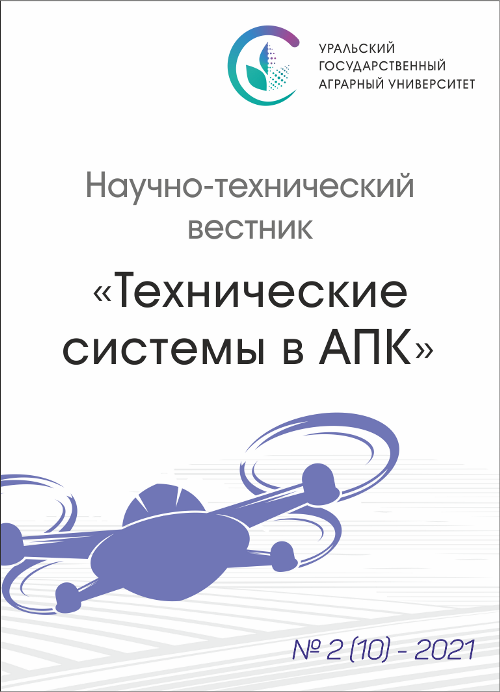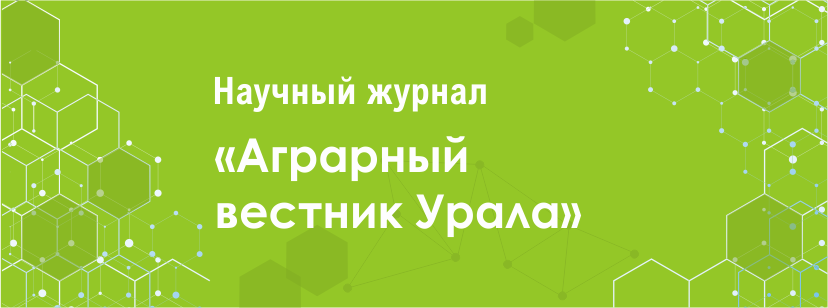As an example of issues related to publishing ethics that the editor faces, one can cite the cases when the author copies a significant part of someone else’s work without mentioning it, when someone else’s work is presented as his own, cases of research fraud, as well as authorship disputes.
Duties of the magazine editor
Decision to publish an article
The editor of the journal work in contact with the scientific and pedagogical team of the Ural State Agrarian University is responsible for deciding which of the papers submitted to the editorial office of the journal should publish. This decision should always be made based on verification of the reliability of the work and its importance for researchers and readers. The editor can be guided by the guidelines developed by the editorial board of the journal and such legal requirements as preventing libel, copyright infringement and plagiarism. Also, when deciding on publication, the editor can consult with other editors or reviewers (or representatives of the scientific and pedagogical team of the Ural State Agrarian University).
Justice
The editor of the magazine evaluates the submitted works according to their intellectual content, regardless of race, gender, sexual orientation, religion, ethnic origin, citizenship or political views of the author.
Confidentiality
The editor of the journal and the staff of the editorial board should not disclose information about the submitted manuscript to anyone else, with the exception of the author-correspondent, reviewers, potential reviewers, consultants of the editorial board, as well as the publisher.
Disclosure and Conflict of Interest
Unpublished information disclosed in the submitted article should not be used in any of the editor’s own work without the written permission of the author. Confidential information or ideas obtained during the review should be kept secret and not used for personal gain. The editor should refuse to participate in the review (for example, instead of his own review, ask the co-editor, deputy editor-in-chief or another member of the editorial board to review) if there is a conflict of interest arising from competition, cooperation or other relations with any of the authors , companies or institutions related to the article. The editor should require all authors of the journal to provide information on relevant competing interests and publish corrections if the conflict of interest was exposed after publication. If necessary, another appropriate action may be taken, such as the publication of a disclaimer or expression of concern. For applications to the journal, the same peer review quality should be guaranteed as for the main contents of the journal. Articles in the appendices to the journal should be considered separately on the basis of their scientific value and interest to readers, but not commercial considerations. Non-peer-reviewed sections of the journal should be clearly marked.
Studying ethical complaints
The editor of the journal should take reasonably quick steps when receiving ethical complaints regarding the submitted manuscript or published article, having contact with the publisher (or the scientific and pedagogical staff of Ural State Agrarian University).
Such measures usually include contact with the author of the manuscript or article and due consideration of the relevant complaint, but may also include further contact with the relevant institutions and scientific organizations, and, if the complaint is confirmed, the publication of a correction, rebuttal, expression of concern or other relevant comment. Each reported case of unethical publishing behavior should be examined, even if it was discovered years after publication.
The editors of the journal "Agrarian Bulletin of the Urals" emphasizes that the Author should not submit a previously published article for consideration in another journal. Otherwise, the Editorial Board agrees to publish an indication that the article is retracted (Rule of recall (retraction) of the article from publication
Reviewer Responsibilities
Participation in the decisions of the editorial board
Peer review helps the editor in deciding to publish the work, and through the editorial contact with the author, can also help the author improve his work. Peer review is an essential component of formal scientific interaction and an integral part of the scientific method.
Professionalism
Any selected Reviewer who believes that the directed publication does not correspond to his specialization, or does not have enough time to carry out the timely review provided for by the rules of the journal, should notify the editorial staff of the journal and ask him to be excluded from the review process of the corresponding manuscript.
Responsiveness
Each selected reviewer, who feels incompetent to review the scientific research described in the manuscript, or who knows that its rapid review is impossible, should notify the editor and exclude himself from the review process.
Confidentiality
Each manuscript received for review should be treated as a confidential document. It should not be shown or discussed with other persons except for persons authorized by the editor.
Objectivity Standards
Reviews should be carried out objectively. Personal attacks on the author are unacceptable. The reviewer should express his point of view clearly and reasonably.
Recognition of Sources
If the authors did not make a reference to any published work, the reviewer should note this fact. Any statement that any data, conclusion or argument has already been reported in the scientific press should be accompanied by an appropriate link. The reviewer should also draw the attention of the editor in case of any significant similarity or partial coincidence between the manuscript in question and any other published work known to him personally.
Disclosure and Conflict of Interest
Unpublished information disclosed in the submitted article should not be used in any reviewer's own work without the written permission of the author. Confidential information or ideas obtained during the review should be kept secret and not used for personal gain. The reviewer should refuse to participate in the review if there is a conflict of interest arising from competition, cooperation or other relations with any of the authors, companies or institutions related to the article.
Responsibilities of the authors
Publication standards
Authors of descriptions of original studies should provide an accurate report on the performed work, as well as an objective discussion of its significance. Key article data should be presented accurately. The work should contain enough detailed information and links so that others can repeat it. Fraudulent or knowingly inaccurate statements are an example of unethical behavior.
Data access and storage
Authors may be asked to submit baseline data related to their work for editorial review, and authors should be prepared to provide public access to these baselines, if feasible. These data must be stored for a reasonable time after the publication of the article.
Originality and plagiarism
The authors of the article must guarantee that they wrote a completely original work, and if the authors used the work and / or the words of other authors, this should be appropriately marked with a link or indicated in the text. Plagiarism takes many forms, from giving away someone else’s work as their own, to copying or paraphrasing essential parts of someone else’s work (without reference to the source), as well as to claiming their rights to the results obtained in studies performed by others. Plagiarism in all its forms is unethical publishing behavior and is unacceptable.
Multiple, duplicate or simultaneous publications
Usually, authors should not publish material in more than one article describing the same study. Submission of the same manuscript to more than one journal at the same time is unethical behavior during publication and is unacceptable. The author should not submit an article that has already been published for consideration in another journal. It is sometimes permissible to publish certain types of articles in more than one journal (for example, translation), but subject to the requirements: the authors and the editor of the published work must agree to re-publish, which should be identical in terms of the data presented and their interpretation of the original document.
Recognition of Sources
It is necessary to properly acknowledge the work of other researchers. Authors should provide links to publications that have influenced the content of the described work. Information obtained privately, for example, in a conversation, correspondence or discussion with third parties, should not be used or reported without express written permission from the source of information.
Authorship of work
Authorship should be limited to those who have made a significant contribution to the concept, planning, execution, or interpretation of the research described. All significant contributors should be listed as joint authors. If any person took part in any significant part of the project, then he should be grateful, or he should be included in the list of joint authors. The correspondent author must ensure that all active joint authors are included in the list of joint authors, as well as all the joint authors read and approve the final version of the work, as well as their consent to submit the article for publication.
Potential hazards and use of people or animals
If the work involves chemicals, hazardous procedures or equipment, the use of which may lead to unacceptable risks, the author should clearly indicate this in his manuscript. If the work involves the use of animals or people, the author should include in his manuscript a statement stating that all procedures were performed in accordance with applicable law and official instructions, and that they were approved by the appropriate committee of the institution / organization where the study was conducted. In their manuscript, the authors must place a separate statement stating that permission was obtained for experiments with people. In addition, the human right to privacy should be taken into account.
Disclosure and Conflict of Interest
All authors should disclose in their manuscript any financial or any other significant conflict of interest that could be construed as affecting the results of the evaluation of their manuscript. All sources of financial support for the project should be disclosed. Examples of potential conflicts of interest that need to be made public are employment, counseling, stock ownership, payment of fees, payment of examination evidence, patent application or registration, grants or other funding. Potential conflicts of interest should be known as early as possible.
Fundamental Mistakes in Published Works
If the author finds a significant mistake or inaccuracy in his published work, it is his responsibility to urgently notify the editor of the journal about this and to collaborate with the editor in order to publish a refutation or correction of the article. If the editor finds out from a third party that the published work contains a significant error, the author is obliged to urgently refute or correct the article, or to provide the editor with evidence of the correctness of the published work.











